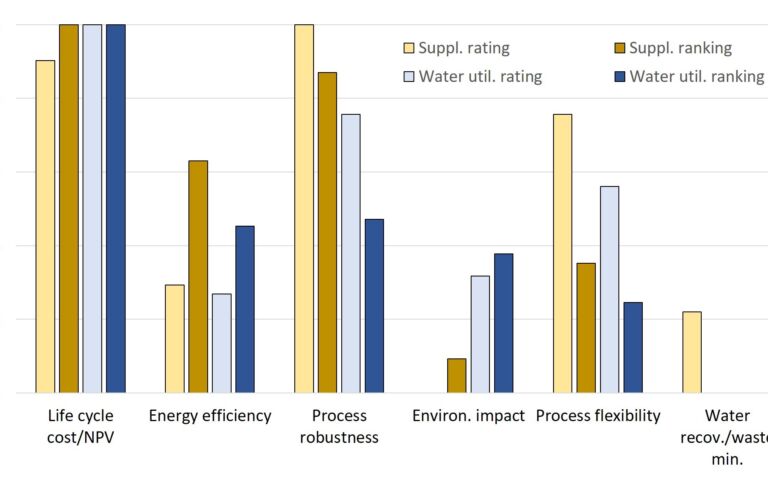Innovation, irritation, indignation

Simon Judd has over 35 years’ post-doctorate experience in all aspects of water and wastewater treatment technology, both in academic and industrial R&D. He has (co-)authored six book titles and over 200 peer-reviewed publications in water and wastewater treatment.
Perhaps one of the most overused words in the marketing of technical goods and services is the word 'innovation'. Just about anything, it seems, passes for innovation these days. There doesn't, for example, appear to be a single aspect or component of the MBR technology that has not been declared innovative by some supplier or other: the membrane material, the membrane module, the membrane aeration, the frame, the overall design − you name it, somebody somewhere has innovated it. Indeed, there seems to be such an abundance of innovation, one struggles to ascertain exactly how we all managed before this veritable plethora of innovative development.
To me, however, being forced to include the 'i' word in any research proposal I'm preparing has a similar effect on me mentally as someone dragging their fingernails down a blackboard does on nervous irritation. It has become a catch-all term to infer positivity in products and services: a mandatory inclusion in the description along with other key buzzwords and jargon like 'customer focus', 'economically viable' and − and at this point I have to reach for my stoutest sick bag − 'new paradigm'. It is surely just one cliché too many.
Unsurprisingly, given its seemingly ubiquitous usage, there have been a large number of essays on innovation. There are also dozens of books based on some aspect of innovation or its application to all manner of subjects and topics, and the word is extensively used within the academic community. According to SCOPUS, there are over 100,000 publications in which the article title includes the stem 'innovat'. There are companies, funding schemes, and countless management methods all apparently employing innovation in some form or other − doubtless to the benefit of us all.
So, what exactly is innovation? This is certainly not the first time this question has been posed, and it's unlikely to be the last. However, the exigencies of scientific research demand that a rational and thorough approach is taken in addressing this particularly vexing quandary.
The word apparently derives from the mid-fifteenth century Latin word 'innovatio', meaning 'restoration' or 'renewal'. However, that was then and this is now: Latin words from almost six centuries ago often don't last the course when it comes to retaining their original meaning. A quick perusal of the internet reveals modern-day definitions of the word to vary a little:
- a new method, idea, product, etc
- something newly introduced, such as a new method or device
- the act or process of introducing new ideas, devices or methods
- 'the process of translating an idea or invention into a good or service that creates value or for which customers will pay', Michael Fischetti
- 'innovation is significant positive change', Scott Berkun
- 'innovation is change and disruptions and problems', David Slayden.
Perhaps, though, one of the most salient definitions of the word for me personally − and one which resonates with many others − is that offered by the late and resoundingly erudite Alasdair Maclean, the former Head of R&D of Yorkshire Water. Alasdair's interpretation of innovation was that it had to be something definitively novel, implemented commercially and accepted by the consumer/user.
Hence, an incremental change in design of a commercial product which could be viewed as a natural or predictable progression would not, according to this definition, be considered innovative even if commercially successful. A novel idea which may be considered ground-breaking but is not a commercial success also would not constitute true innovation. Against this, however, things like the printing press, the ballpoint pen, the light bulb and the internet are truly innovative.
No matter, despite this lucid, precise and elegant definition, in the final analysis it has to be concluded that innovation means ... whatever the hell you want it to mean. And if anyone out there can come up with a way of automatically deleting the word from all marketing material then surely this would be a ground-breaking commercial development, and one suspects universally implemented and widely acclaimed by a grateful public.
Or, put simply, innovative.








